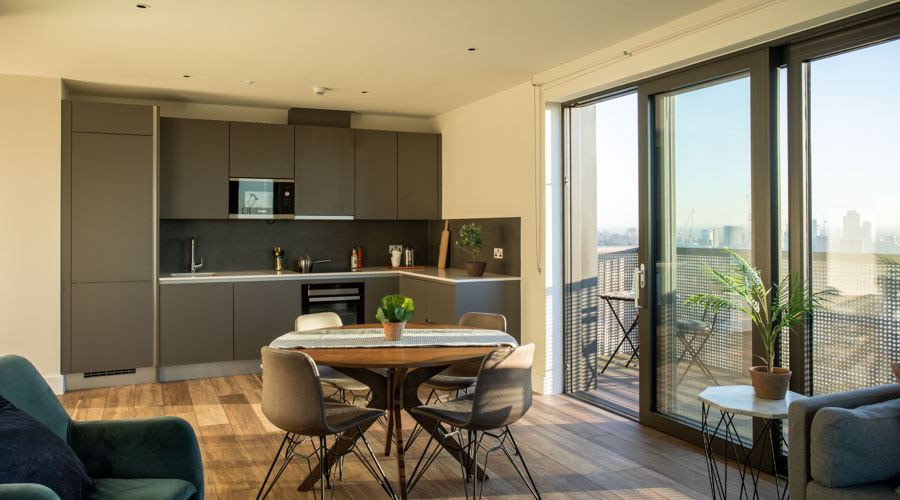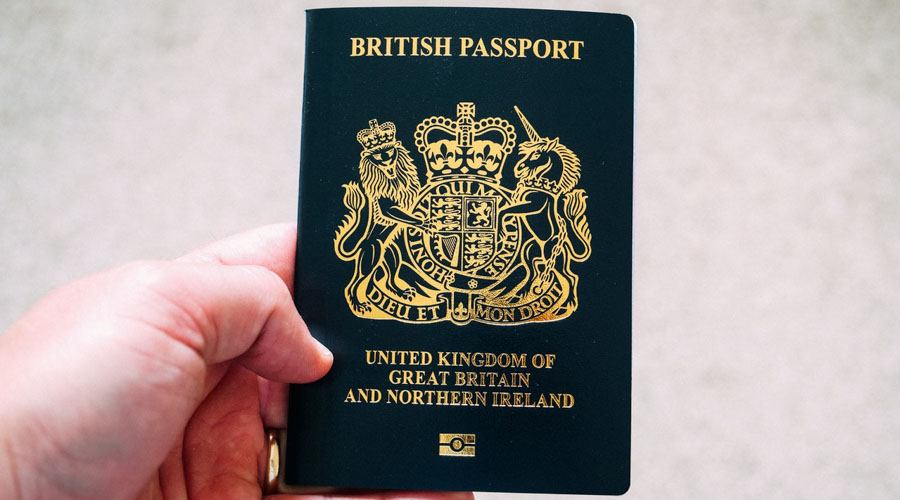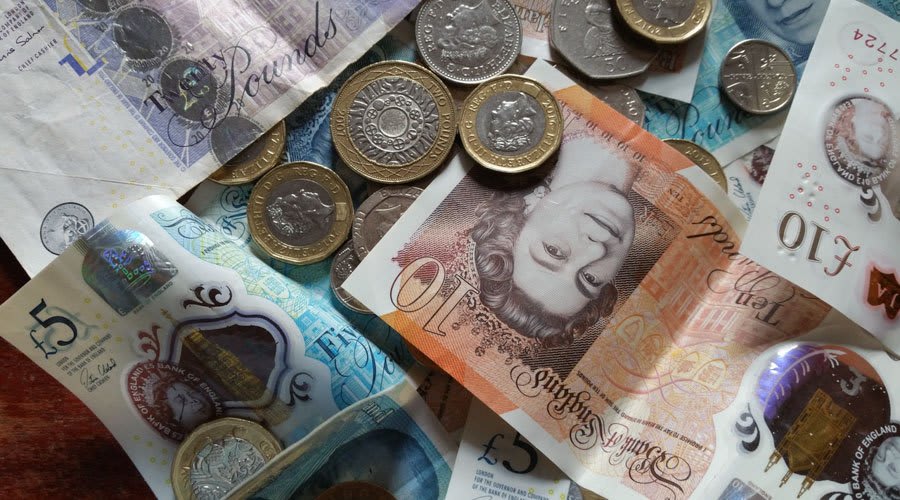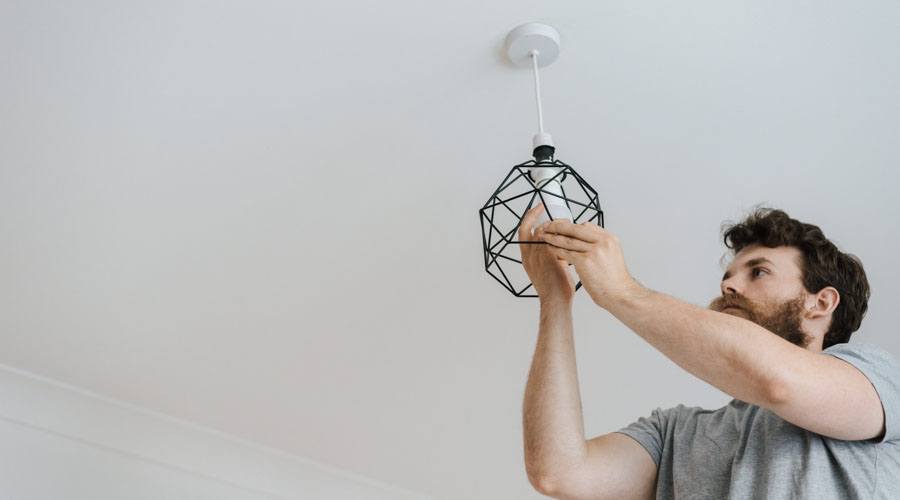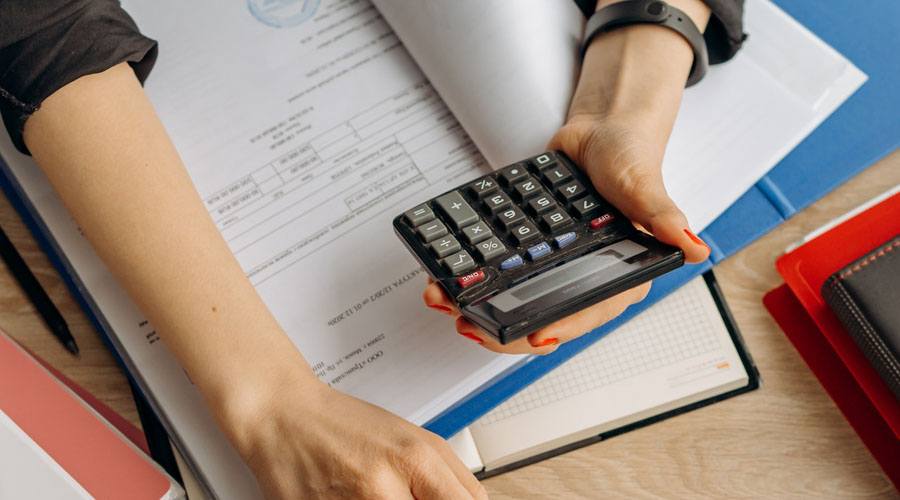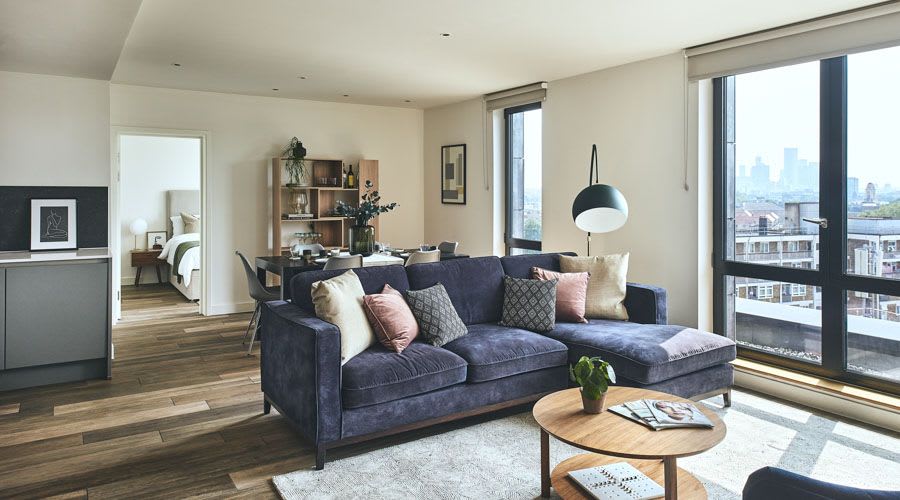It’s finally time to make a move and find somewhere new to call home. Right now it might feel like an impossible task, especially if you’re living in London and facing a competitive renting market. However, with the right know-how, finding the perfect place to live can feel like a breeze.
Many people believe that buying a property and opting for a monthly mortgage payment is a better option than renting, however, we still believe that renting is a great option for many. Renting offers a lot more flexibility and can help you to avoid the hidden costs of owning your own home that many people forget to factor in, such as property taxes and pest control.
Our ‘How to Rent Guide’ is the best place to start on your new renting journey. We’ll tell you everything you need to know about renting in 2022, from searching for your next apartment to all the documentation you’ll want to gather together to make the process as streamlined as possible.
Where to start
Whether you’re brand new to the world of renting or you’re a seasoned pro, it’s always good to get clear about where you’re starting from and what you want to look for.
1. Getting clear about your needs
A great place to start is by getting clear on what you need from your new place. Start with your ideal location and set your search on that area, this will help you narrow down the options you have available and give you a better idea of the price range you’d be looking at.
Some other things to think about are:
- Whether you need an apartment that is pet-friendly, something we’ve spoken about previously on our blog
- Whether you’d like there to be communal facilities such as a gym or lounge area
- Whether you need a place with accessible access
- Or if you’re looking for some exceptional views of the city.
Keep in mind your budget and the deposits you will need in order to secure your tenancy. There has been a cap on how much of a deposit a tenant has to pay since June 2019, meaning that you would look to pay no more than 5-weeks rent on properties with an annual rent under £50,000 and 6 weeks for properties with annual rent over £50,000.
Something else to think about is whether you are looking to live with housemates or whether you want to live alone. Living with housemates can be a good way to split the costs of things like council tax, utilities and rent. Whether you’re living with people you know already or housemates you’ve found elsewhere, it’s always important to make sure your letting agency or landlord knows exactly who is living in the property and that all tenants are named on the tenancy agreement.
2. Long term or short term rentals?
Are you interested in a long term or short term rental? If you’re in need of somewhere temporary to live, then a short term rental will be best as you have shorter leasing contracts giving you more flexibility.
If you’re in the search for a place to call home for years to come, then a long term rental will be what to look out for. These will usually be contracts that last for 6-12-months or more demanding a long term commitment. If you have an Assured Shorthold Tenancy (AST) the landlord is legally required to allow you to live in the property for a minimum of 6 months.
There are many landlords that will let you rent an apartment on a week by week or rolling monthly contract, which is a great option if you need a bit more flexibility with your living arrangements. With these, double-check what your notice would be for moving out of the property, usually for rolling monthly contracts you’ll need to give a month's notice before you leave, however, this can work both ways, so make sure you’re clear about what rights you have and what rights your landlord has in regards to freeing up the property.
3. Doing a Right to Rent Check
When you apply to rent, your potential landlord will do a right to rent to make sure you have the legal right to rent in the UK. This check makes sure that you will be using the property as your main home and prove that you can live in the UK. For UK citizens you can use a valid passport, your birth certificate or a valid driving license. If you’re a foreign national, then you will need any official documentation you have that proves you have the right to live in the UK.
What you need in order to rent
Now that you’ve got the finer details sorted, it’s time to gather together everything you’ll need in order to rent.
4. Sorting out deposits and references
As we said above, you’ll be required to supply a max of 5-6 weeks of rent in order to secure your property. This will have to be paid upfront before you move into the property and your landlord is required to put it into a government-approved tenancy deposit scheme (TDP). This means that when you move out of the property, as long as all the terms of your agreement are met and there is no damage or outstanding bills that need to be paid, your full deposit will be paid back to you. However, if there are damages to the property or overdue rent or bills, this will be taken out of your initial deposit as payment.
Something else your letting agency or landlord may ask for are references from your previous or current landlord and also your employer. This is just so potential landlords can protect themselves from neglectful tenants and so they can ensure you have a job and will continue to have one for the entirety of your tenancy agreement.
If you’re struggling to get a reference, particularly if this is your first time renting, then you can substitute previous landlord references with ‘character references’ from those that know you well.
You may also be asked to provide a guarantor in order to rent - this is someone who agrees to cover the cost of rent if you fail to pay or find yourself in a situation where you’re struggling to pay the rent owed. Usually, your guarantor would be a parent or other close member of your family.
5. Documents you’ll need to collect
Having the right documentation ready to go is key to a stress-free rental application, but it can be daunting trying to gather everything together if you’re not sure exactly what you’ll be asked for.
Above we mentioned your references, these will be your employer and previous landlord or character references. Along with these, you’ll need proof of income and employment status documents. These can be the last few months of payslips or your most up to date employment contract. These documents should be backed up by the employer's reference and show that you are currently in a position to be able to pay the rent every month.
However, if you’re self-employed, you may need a few extra documents to prove your income and employment status. Usually you’ll need proof that spans a longer time period than those in full-time employment, this can be up to three years of documents. The most common you’ll be asked for are bank statements, trade accounts and tax documents. If you have an accountant or accounting software you should be able to collect these fairly easily.
If you’re looking for even more advice and information on what documents you’ll need to rent, you can take a look at our detailed guide ‘What Documents You Need to Rent a Flat’ which goes through everything you need for renting a flat in London and beyond.
6. Credit Checks & further checks
The other thing to watch out for is credit checks. Landlords or letting agents may require a credit check to make sure you’re a reliable tenant, so if you know you have a poor credit score, now is the time to start making changes to boost it. You can still rent with a poor credit score, however, your landlord may ask for your rent up-front or require a guarantor in order to protect themselves financially.
Hidden costs & details to be aware of
Whether you’re renting or buying, there are always going to be hidden costs or unexpected fees that blindside you. In our How to Rent Guide, we wanted to make sure you’re fully prepared by listing all the different costs and fees you may come up against when renting.
7. Utilities
The first thing we recommend looking into is your utilities like gas, electricity, and Wi-Fi, as these will be the next biggest cost after your monthly rent. It’s said that as a rule, you’d be looking at around 20% of your monthly rent for utility costs, however, it’s always worth putting a bit more to one side, especially with utility costs at an all-time high in 2022.
Some apartments like our own Essential Living locations may include all your bills and rent into one easy to manage monthly lump sum, so it’s worth checking in advance to see if this is the case with the property you’re looking at renting.
Always check with your landlord or letting agent about the utility bills as some landlords may have set utility providers they prefer to use. If it’s your responsibility to sort out utility providers, you may have to do some research on the best value packages in your chosen area. Also, it’s worth being aware that your landlord must give an Energy Performance Certificate (EPC) that is valid for 10 years - this just gives the energy performance details and carbon dioxide emissions of the property.
8. Council Tax
Make sure you know what council tax band the property falls into so you can start to budget for your council tax charge. Normally, setting up a council tax account with the local authority is left up to the tenant once they move in, but it’s always worth double-checking with your landlord whether it’s included with your other utilities.
If you’re trying to keep within a specific budget, research the council tax band when looking at the location you’d most like to move to. You might be able to reduce your council tax bill by moving to an area close by that has a lower band than your initial choice. It’s also worth noting that if you live alone or live with people who are exempt from council tax payments (like students), you can get 25% off your council tax bill.
9. Term agreements & responsibilities
Something that can often catch people out is that when paying rent, a month is not 4-weeks long, so if you’re paying weekly instead of monthly, you may end up paying more than you thought you would each month. Instead, multiply your weekly rent by 52 and then divide by 12 in order to get a more accurate monthly rental price.
When moving into a new apartment make sure you’re clear about what you get for your money. Often the inventory of the apartment or house will be included in your tenancy agreement and it should make it clear what the landlord owns and what you have responsibility for.
When reading through the terms and conditions of your rental, make sure to check the amount of deposit required as well as the rent. In your contract, there should be a clear date every month that your rent should be paid so you can set up standing orders or direct debits to avoid any late payments. It’s important to double-check any hidden small print that may end up costing you further into your rental period, for example, liability should the property be broken into or emergency repairs.
If you’ve chosen to live with housemates, make sure that everyone is named correctly on your tenancy agreement and that there are ways for you to protect yourself financially should your housemates fail to pay their part of the rent, utilities, council tax or cause damages that need to be paid for. Some agencies and landlords will offer separate contracts for each tenant, which is a good way of protecting yourself, but this isn’t always the case. If you do find that there is a joint contract with your housemates and yourself then make sure that there are details within your contract that keeps all tenants accountable for the property and any furniture included in the tenancy.
Furnished or Unfurnished?
If you have a fully furnished rental, you’ll be responsible for keeping all the furniture and appliances in good condition to avoid any fines when you come to move out. Furnished properties are a good option for those that don’t want the extra cost of furnishing their new home, but it can be limiting when it comes to decorating your home to meet your own style.
Part-furnished properties are a good option if you don’t want to splash out on the more costly items such as washing machines, fridges or dryers. Often white goods will be included in part-furnished properties and can free up some extra budget for buying your own furniture. If you’re happy to fully furnish your own rental property then unfurnished is ideal. All the furniture and white goods in the property will be owned by you and if you do damage anything, you don’t have to worry about the landlord dipping into your deposit to cover repair or replacement costs.
Make sure you do a full inventory check before you settle into your new home and it always helps to take pictures of any damaged furniture or white goods before you move in so you don’t take the blame for it when you choose to move.
10. Fees to keep in mind
Content insurance
Getting content insurance is always advised whenever you move into a new property. Some landlords renting out furnished or part-furnished properties may already have content insurance, so double check before heading out and grabbing a policy of your own. If you’ve opted for an unfurnished property then content insurance is a great way of keeping all your belongings safe and covered.
TV licence
Don’t forget that if you watch terrestrial television, whether it’s through an aerial, cable or catch-up streaming services, you’ll need to pay for a TV licence. Currently, a TV licence will set you back £159 per year which you can spread across 12-months via direct debit. You don’t need a licence if you watch streaming services such as Amazon, Netflix or Disney+, but for live TV or catch-up TV like BBC iPlayer or 4OD, you will need a TV licence.
Agency fees
The fees that catch the most people out are agency finding fees, processing fees and early termination fees. When you approach a letting agency to find a rental property, ask them about their finding and processing fees and make sure you know exactly how much they’ll charge you as a finding fee and for processing your application before working with them.
There can also be hidden fees attached to your terms and conditions that can catch you off guard. These are usually late payment fees for rent, which can be charged at no more than 3% above the Bank of England’s base rate should the rent be over 14 days late. Interest will be charged on a daily basis, so it’s always worth making sure to keep on top of your rent so you don’t end up spending more than you had originally planned.
Did you know that at Essential Living, we don't charge any fees?
For your protection, check to see what conditions are in place for the early termination of your rental agreement. Some landlords will charge an early termination fee, meaning that if for any reason you want to end your tenancy agreement earlier than originally agreed, you may be charged a lump sum to cover the losses that the landlord will incur. These should be clearly outlined in your original tenancy agreement, but if it’s not you can request to add it in just to give you peace of mind.
Finally, if you’ve chosen to go through a letting agency, make sure they are a member of ARLA Propertymark and that they have Client Money Protection (CMP). This helps to protect you should your agency go bust or if they decide to run away with your money. Should this occur, which is rare, Propertymark will reimburse you and make sure you’re not left in any financial trouble.
Where to go from here
Our ‘How to Rent Guide’ is just that, a guide, the rest is up to you. There are plenty of places to start your property search including right here with Essential Living for those living in London or looking to move to the city.
Many people see renting as an empty investment with many believing that mortgages are a much safer investment option, however, renting is still proving to be an affordable option for those looking for a place of their own.
If you’re interested in searching for your next London home, then why not take a look at some of our locations.


